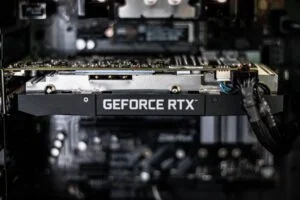Hey there, fellow gamers! Ever found yourself in the heat of battle, only to have your game freeze at the worst possible moment? Or maybe you’ve seen that frustrating “lag” message pop up when you’re about to score big? Don’t worry, you’re not alone. Turns out, having good internet speed is like having a supercharged engine for your gaming adventures. We’re here to break it all down for you – no tech-speak, just plain English.
Picture this: you’re exploring enchanted kingdoms, blasting aliens, or scoring goals with friends from around the world. You’re living the gaming dream! But hold on a second. Have you ever thought about how the internet plays a part in all this action? Well, buckle up, because we’re about to take you on a ride through the world of gaming and internet speed.
What Is A Good Speed For Internet?
In this guide, we’re going to talk about what exactly internet speed means for your gaming fun. We’ll chat about things like why some games seem to hiccup, how quickly you can download new stuff, and what the heck “ping” has to do with anything. Whether you’re a weekend warrior or aiming to be a gaming champ, knowing about internet speed can seriously level up your game.
So, if you’re ready to learn how to avoid those annoying freeze-ups, score smoother gameplay, and dominate the digital realm, you’re in the right place. Get comfy, grab your favourite controller, and let’s dive into the world of gaming and internet speed.
What Is A Good Internet Speed For Gaming?
When it comes to online gaming, having the right internet connection speed can mean the difference between a seamless, immersive experience and frustrating lag and delays. So, what exactly is a good internet speed for gaming? Let’s break it down.
The most important aspect of internet speed for online gaming is the concept of “ping” or latency. Ping is the time it takes for a signal to travel from your device to the game server and back. Low ping is essential for real-time games like first-person shooters, where split-second decisions can determine victory or defeat. A ping rate of 20-50 milliseconds (ms) is considered excellent and should provide a responsive gaming experience.
Another important factor is download speed, which affects how fast you can download game updates, patches, and digital content. For smooth gaming, a download speed of at least 25 megabits per second (Mbps) is recommended. This will ensure that your online games download quickly and don’t eat into your precious playtime.
Upload speed, while not as crucial as download times, still plays a role, especially if you stream your gameplay or interact with other players through voice chat. An upload speed of around 5 Mbps should be sufficient for most gaming scenarios.
Here’s a handy table to give you a clearer idea of what internet speeds are suitable for various gaming activities:
| Gaming Activity | Ping (Latency) | Average Speed (Download) | Upload Speed |
|---|---|---|---|
| Fast-paced shooters | 20-50 ms | 25 Mbps | 5 Mbps |
| Multiplayer gaming | 20-60 ms | 10 Mbps | 3 Mbps |
| Casual gaming | 30-80 ms | 5 Mbps | 2 Mbps |
| Streaming gameplay | 30-60 ms | 50 Mbps | 10 Mbps |
Remember, these are general guidelines, and your specific needs may vary based on the games you play and the devices you use. If you’re a serious gamer or share your connection with others, consider opting for high-speed internet to ensure a consistently smooth and enjoyable gaming experience.
How Much Internet Speed Do You Need For Normal Use?
From browsing the web and checking emails to streaming videos and video conferencing, each task demands a certain level of internet speed to ensure a smooth experience. So, let’s take a look at what Wi-Fi speed is needed for normal use.
| Online Activity | Recommended Wi-Fi Speed Range |
| Light browsing, emails | 1 – 5 Mbps |
| Streaming SD videos | 5 – 10 Mbps |
| Streaming HD videos | 10 – 20 Mbps |
| Video conferencing | 10 – 20 Mbps |
| Multitasking, multiple users | 20 – 50 Mbps |
| Heavy usage, multiple devices | 50 Mbps and above |
How To Chose The Right Internet Connection For You?
- Speed: Think about what you do online, like watching videos or playing games. You need enough speed for these things to work well.
- Type of Connection: There are different ways to get the internet. Some are faster, like fibre-optic, while others, like DSL, might be slower.
- How Much You Use: Some plans limit how much internet you can use. Make sure you get enough data for your needs.
- Reliable Internet: You want the Internet to work all the time. Look for a company that doesn’t have a lot of problems.
- Customer Help: If something goes wrong, you’ll want good customer service to fix it.
- Contract: Some plans make you sign a contract. Check if you can cancel it without paying extra.
- Setup: Find out if you need to pay for equipment or if the company will help you set things up.
- Bundling Internet Plans: Some companies offer internet with TV or phone service. See if this saves you money.
- Where You Live: Not all companies work in all places. Check if the company covers your area. And check for WiFi network congestion and coverage too. Also, make sure that you aren’t in a remote location, or this may affect and give you low-latency connections.
- Cost: Think about how much you can spend each month. Compare prices to get the best deal.
- Future: Think about if your internet needs might change. Can you easily upgrade your plan later?
- Reviews: See what other people say about the Internet service provider. This can help you make a good choice.

Conclusion
So, to wrap things up, picking the right internet connection is a big deal. It affects how smoothly you can do things online. By considering stuff like how fast you need it to be, what type of connection is best, and how reliable it is, you can make a smart choice.
Don’t forget about good customer service and not paying too much either. The internet you choose can make your online life easy and enjoyable, so think it over and choose wisely.








